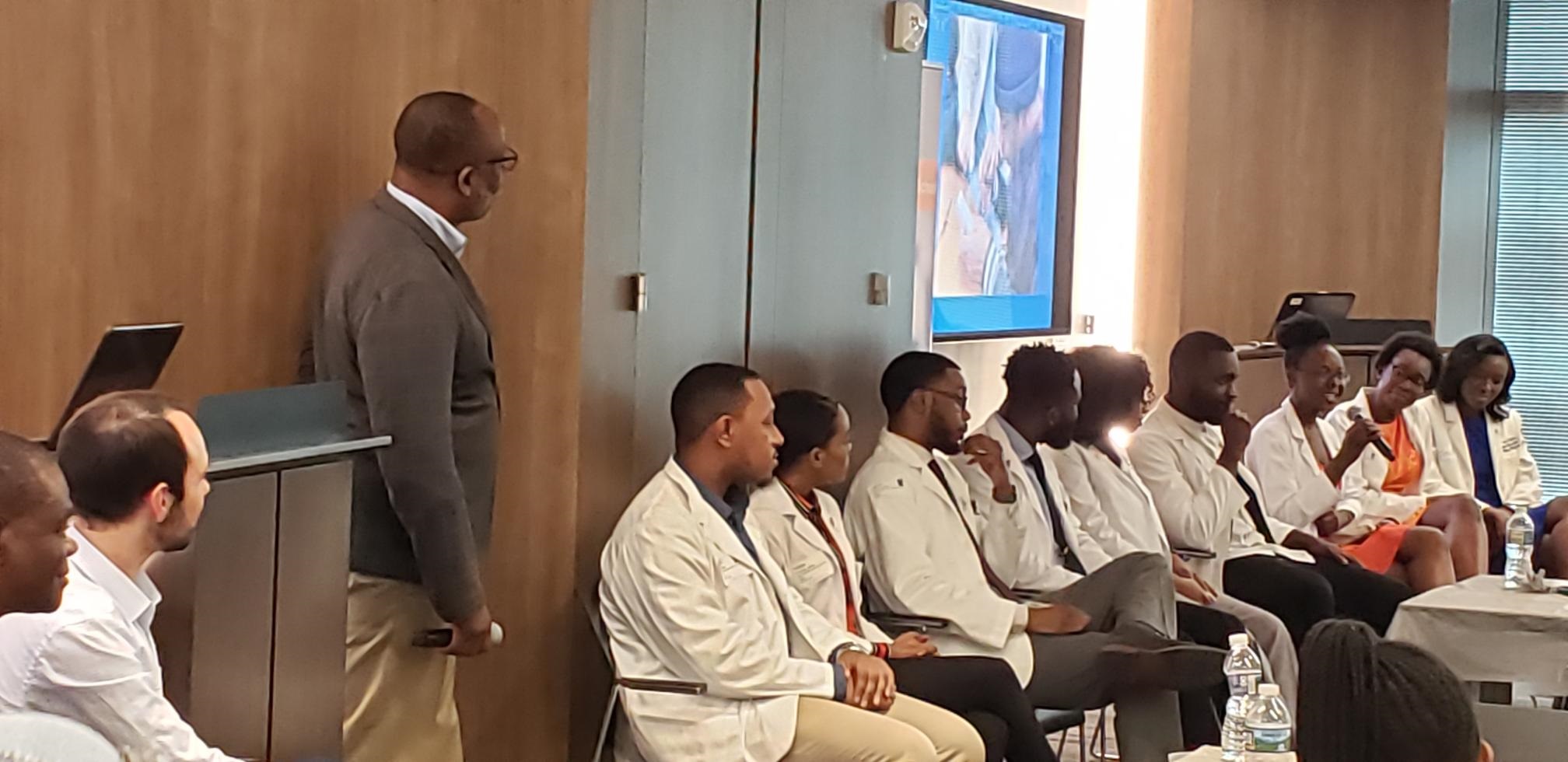Health Equity

News, Statements, and Testimony on Health Equity Issues
25th Council session information coming soon.
DC Health Releases New Public Health CME Domains
The following was released by the Department of Health on March 14.
DEPARTMENT OF HEALTH
PUBLIC NOTICE
IDENTIFYING PUBLIC HEALTH ISSUES FOR CONTINUING EDUCATION
The Director of the Department of Health (Director) hereby gives notice of the topics identified as public health priorities for the purpose of the continuing education required for the renewal, reactivation, or reinstatement of health professional licenses, certifications, or registrations, issued in accordance with DC Official Code § 3-1201.01 et seq; hereafter referred to as health professionals.
With the goal of enhancing the protection and promotion of public health and in accordance with the rulemaking authority under DC Official Code§ 3-1203.02(12), the Director has promulgated rules requiring health professionals to complete at least ten percent (10%) of their required total continuing education in the public health priorities of the District as determined and published every five (5) years or less frequently as deemed appropriate. The Director has identified five (5) public health domains and provided content examples that would align with each domain. These examples are not intended to be exhaustive; however, they are designed to guide renewal applicants in identifying areas of public health that are aligned with the priorities of the public health authority but also beneficial and germane to the specific license, certification, or registration type.
1. Sexual and Reproductive Health
a. Obtaining a sexual history and discussing sexual experiences with patients
b. Adolescent sexual and reproductive health and rights
c. Cervical cancer
d. Family planning and contraception
e. Maternal and perinatal health
f. Violence against women and girls
g. Breastfeeding Promotion
2. Chronic Disease Management
a. Obesity prevention and treatment
b. Lifestyle change management
c. Disease-specific management (hypertension, diabetes, stroke, kidney disease, etc.)
3. One Health (https://www.cdc.gov/one-health/about/index.html)
a. Vector and non-vector borne diseases
b. Water quality and safety
c. Zoonotic diseases
d. Antimicrobial-resistant germs
e. Food security
f. Environmental contamination
g. Air quality
h. Impact of climatological changes on health
4. Healthcare Professional Retention and Capacity Building
a. Suicide prevention
b. Avoidance and managing burnout
c. Quality improvement
d. Substance use/misuse and substance use disorder
e. Implicit bias, cultural humility, and Culturally and Linguistically Appropriate Services (CLAS) in health and healthcare.
5. Community and Patient Safety
a. Fall and injury prevention
b. Violence prevention, including gun violence
c. Emergency preparedness for patients
d. Effects of social media
e. Infection control
f. Identifying cognitive impairment in patients
Each health professional licensing board shall disseminate the identified public health domains to its health professionals via electronic communication and through publication on its web page. Since the goal of this list is to engage and educate health professionals in the promotion and protection of public health, it is intended to be liberally interpreted by each health professional licensing board with regulatory authority over each license, certification, and registration type.
The requirement for continuing public health education may be found in specific professional rules under Title 17 of the District of Columbia Municipal Regulations (DMCR), such as section 7808.2 for audiologists (17 DCMR § 7808.2); section 6906.4 for psychologists (17 DCMR § 6906.4); section 7008.4 for social workers (17 DCMR § 7008.4). This requirement may still be under rulemaking process for certain professions and is therefore not yet in effect for those professions. To determine whether public health continuing education is required for a specific license, certification, or registration, visit the specific professional licensing board web pages at www.dchealth.dc.gov or contact the Department of Health at (202) 422-5955. Health professional regulations may be found at www.dcregs.dc.gov .
Sample of Health Equity Legislation MSDC Tracked
What does it say? The bill allows for the administration of medicinal marijuana in schools as well as allows students to bring sunscreen to schools and apply it without a prescription.
MSDC position: MSDC supports the language permitting sunscreen application in schools
Current status: A win for DC physicians and public health! The legislation passed the Council in February and was signed by the Mayor. Previous temporary and emergency legislation permitted students to use sunscreen at schools this school year already.
What does it say? The bill requires DC Health to establish an electronic Medical Order for Scope of Treatment registry (eMOST).
MSDC position: MSDC supports this legislation to more easily allow patients to make their treatment orders known.
Current status: A win for the physician community and our patients! The Council passed the bill in December and the Mayor signed it into law on January 16, 2020.
What does it say? The bill would implement a 1.5 cent per ounce tax on the distribution of "sugary" beverages. The money collected from the tax would establish a Healthy People, Healthy Places Open Spaces Grant Program.
MSDC position: MSDC sent a letter to Council Chair Mendelson asking for a hearing to discuss all of the issues around a beverage tax.
Current status: The bill was introduced October 8, 2019 and referred to the Committee on Business and Economic Development and the Committee of the Whole.

Leave a comment